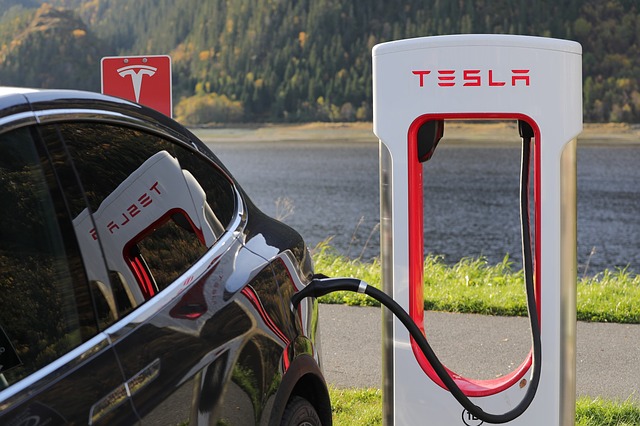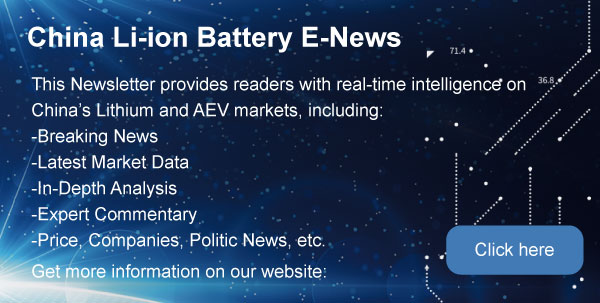On May 10, 2018, Tesla
was approved to establish a subsidiary in Shanghai. According to CCM, the
future facility will surely speed up localisation in the Chinese market.

On
May 10, 2018, the world’s largest clean-energy vehicles producer Tesla's has
announced that a fully owned subsidiary called Tesla Shanghai with a registered
capital of USD15.71 million and shareholder being Tesla Motors Hong Kong
Limited is established, according to the National Enterprise Credit Information
Publicity System. Tesla Shanghai is mainly involved in the technology
development and transfer and technical services related to electric vehicle
spare parts, battery, energy storage equipment and photovoltaic products, and
the wholesale and imports & exports of the said products.
Currently,
due to the strict policies for car imports in China, Tesla’s cars are all
subject to 25% import tariff. This obstacle is ought to be removed by
establishing the own subsidiary in the Middle Kingdom.
Elon
Musk, CEO of Tesla, tried to get a company opened in China for quite some time
already. However, since foreign companies could previously only open a branch
in China when they partner up with a domestic enterprise, Tesla did not make
the move. The company couldn’t agree on sharing the technology and intellectual
property with the Chinese. This obstacle has now been removed, opening the path
of Tesla into China.
Most
automakers have acquiesced to the joint venture rule and partnered up with
Chinese manufacturers to skirt that import tax so that they can keep costs low
for customers and access the market.
Soon
after the announcement of the new facility in Shanghai, Tesla’s hiring efforts
started with the company’s official WeChat account posting job listings for a
Tesla facility.
Partnership with
Panasonic
Additionally,
Director Kazuhiro Tsuga of Japan-based Panasonic stated on May 11, 2018, that
the company may partner with Tesla to produce batteries in China. This is the
first time for Panasonic to admit the possibility to produce batteries for
Tesla in China. Panasonic is the world's largest EV purpose Li-ion battery
supplier. Now the Li-ion batteries for Tesla's EVs are all supplied by
Panasonic.
CCM
is of the opinion that the establishment of Tesla Shanghai which has not yet been
involved in the vehicle manufacturing, is an acceleration for Tesla to build
its self-funded plant in China. This may introduce Panasonic's battery
production system into China and may furthermore shock the Chinese power
battery business. A deep phase-out may be carried out in the industry, and the
industry transformation and upgrading may be sped up. Currently, the domestic
Li-ion battery producers are technologically far behind the international giant
players such as Panasonic and LG, regarding the key indicators such as energy
density of battery and production cost.

Now
China is loosening its restriction on foreign shares in the manufacturing of
alternative energy vehicle. That is to say, Tesla and Panasonic may build their
plants in China. In future, the premium market may grow in an explosive way.
This, together with the decreases in subsidy, are two big challenges to the
traditional Li-ion battery makers who are poor in technology and supply chain.
However, it is an opportunity to those in possession of upstream resources and
advanced technology: they may upgrade their business, be geared with the world
and seek for greater growth.
However,
some experts are of the opinion, that Tesla should not invest in an own factory
in China yet and keep exporting for now. If the taxes for car imports are
lowered further, as China’s President Xi Jinping recently hinted, it could be
all the more reason to wait on going full throttle with production in China.
Foreign car
manufacturers in China
Facing
enormous regulatory threats in the world's largest car market, international
car manufacturers are looking for strategies for products and technology
development to get ground in the competition for new energy cars in
China.
Ford
China has recently announced to establish a joint venture with China’s Anhui
Zoyte car enterprise to leverage the production and sales of electric passenger
cars in the current largest market for alternative energy vehicles. The
partnership will have a 50-50 stake and the new cars being built will be sold
under a new local brand as well. The new company will mainly engage in the
research, manufacture, sales and after-sale service of battery energy passenger
cars.
Germany’s
car manufacturer giants Volkswagen and Daimler have both recently made
agreements with Chinese enterprises to strengthen their presence in China’s AEV
market and boost production of green cars. Also the Renault-Nissan Alliance
announced it's forming a joint venture with Dongfeng Motor Group with the aim
of developing and building plug-in electric cars specifically for the Chinese
market. These steps reflect the rush of foreign enterprises to increase
zero-emission car sales in China, as the country is getting strict regarding
environmental protection.
About the article
The
information for this article comes from CCM, China’s leading market
intelligence provider for the fields of agriculture, chemicals, energy, food
and feed.
Get
regular and exclusive insights into China’s AEV market by subscribing to CCM’s
monthly published China Li-ion battery News.